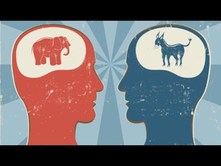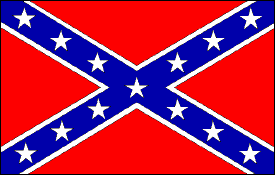|
I was probably 5 years of age when I was taught to pledge my allegiance.
I was 18 years of age when I took an oath. I was 20 years of age when I pledged to join an organization. I was 23 years of age when I took another oath. In my experiences, no one informed me exactly what my actions meant entirely. That’s not to suggest this was anyone’s fault beyond my own. However, so many adults call themselves being “protective” with children from topics they consider beyond a child’s comprehension. Did anyone ever considered a 5 year old being too young to pledge their allegiance? Did anyone ever considered asking children if they were even interested in making such a pledge? In each of my instances, no one ever went into any detailed explanation regarding what pledging an allegiance actually meant. Maybe that was strategic. Even when I was older and took an oath to support and defend the United States Constitution, I never experienced anyone deemed to be in a position of authority go to any length to determine if I understood what I was doing. No one even asked if I had any questions about what I was about to do. No one even went line by line over the document I was swearing to defend. Maybe that was strategic. Would it not make more sense to ensure anyone making a pledge or taking an oath comprehends what they are doing? To whose benefit is it to have children who barely understand why they are even attending school to learn to recite the pledge of allegiance? Maybe this is why some never question and even find it disrespectful if someone decides to ask questions or ask for reciprocating allegiance in return.
0 Comments
 I’ve been hearing the terms conservative and liberal thrown around quite a bit lately. Not that I have not heard these terms before, I just never put much thought into what they mean. My initial thought regarding these words made me think of servitude and liberty, however I did not want to jump to conclusions so I opted to do some research into the creation of these terms. The Liberal Party was an British political party formed in the early 1800’s. The founding leaders of this party sought to establish policies which supported free trade, religious liberty and social legislation. This party won the British election of 1832 and remained in control until about 1865. The party’s policies reformed and reorganized British possessions and territories which included abolishing ownership of human beings. The liberal party was formed in reaction to some of the policies of the preceding Conservative Party. The Conservative Party was also an early 1800 period political party in England. English conservative party members were avowed to changes in old and established practices. In the United States, it was first the Democratic Party that opposed the establishment of the subtreasury system and adopted the Conservative Party Name, as did both Northerners and Southerners who opposed the reconstruction period following the Civil War. I’ve witnessed enough to be fairly confident that this would be the time that those who choose to unapologetically follow their particular political party will seize the moment to wave their political banners as a symbol of victory along with the battle cry of “I told you so!” However this bit of information raises some additional questions. I’ve read many Republican Party supporters’ comments and they seem to have crossed over into ideas supported by the aforementioned Southern and Northern Democratic Party members. The lines appear to have been blurred with current Republican Party members shouting “insults” of liberalism and now the current Democratic Party members are associated with a political party that may not of had the best interest of a group of people they are considered relative with. I still have some thoughts about the two words that required additional investigation. Without researching the words and learning the literal meanings, when I look at the root of liberal, my first thoughts were associated with liberty which many associate with freedom. One of the dictionaries I read indicates the word Liber derived from a Latin word, liberalis meaning freedom. The dictionary reads, liberal arts are courses of study at a college which are befitting of a free man and even further reads liberalism emphasizes freedom from tradition and authority. From its inception, “conservatives” sought to keep or preserve those traditions, practices and policies that directly supported their interests, which indicate some similarities with the word conserve. Conserve also appears to be a combination of the words con & serve. The prefix con derived from the Latin word, conducere meaning to lead or bring together and serve derives from the Latin word servus meaning a servant, slave or serf. Interesting that servant, slave and serf all have the same meaning yet somehow the prevalent thought of those words or terms of servitude are somehow different. For example indentured servant, slave, even serfdom are not viewed as the same practices, and some consider indentured servitude and serfdom as a better condition of existence in comparison with slavery. Henry Peter Brougham is credited with the quote, “Education makes a people easy to lead, but difficult to drive; easy to govern, but impossible to enslave.” This quote reminds me of the concept associated with the study of liberal arts, befitting of a free man. I even notice some connectivity with liberal, liberty and library. This bit of information provides me with a better understanding of those who “insult” anyone whose ideas oppose theirs. Is it really insulting to be identified with being accepting of change, as supportive of ideas that foster freedom from traditional or authoritative concepts that do not benefit all that have a right to exist on this planet? Before anyone decides to makes a presumption regarding my affiliation with a certain political party, know that I consider myself a political free agent. I do not feel a need to be associated with any political party but I am open to consider any group actually seeking changes which promote the right for people to exist as they chose just as long as they don’t harm or obstruct another’s equal right to the same. It is confusing that many who have a sense of pride about a country marketed on freedom will frown upon those who actively practice what the framers of the Declaration of Independence wrote, when they sought freedom from those who held them in servitude and imposed policies and practices designed to conserve their right to exist in accordance with the laws that nature’s god entitles them. A quick search led me to about fifty songs with the word respect in their titles. What could the artist be suggesting in their lyrics about this word? Or is it words? We see, read, recite, speak words every single day but very few have been taught about the science of words. Respect a compound word, derived from Latin meaning to look back at or observe again. Not a glance, but really take a look at something, someone and see it, see them, even see yourself. I've heard a saying the eyes are the window to the soul, so go on, I dare you to take a moment and really look again and again and again if necessary and maybe you may reach an understanding of Neytiri's message.
"Heritage not hate" is the slogan some are stating as to their reason to fly these colors. Not that I am emotionally triggered when I see this symbol but the word heritage comes from the Latin word heres, meaning a condition or state transmitted from ancestors. What condition or state are they seeking to inherit from their ancestors???
|
ADISAUSAGE: WESTERN AFRICAN, YORUBA. Archives
September 2017
|


 RSS Feed
RSS Feed
